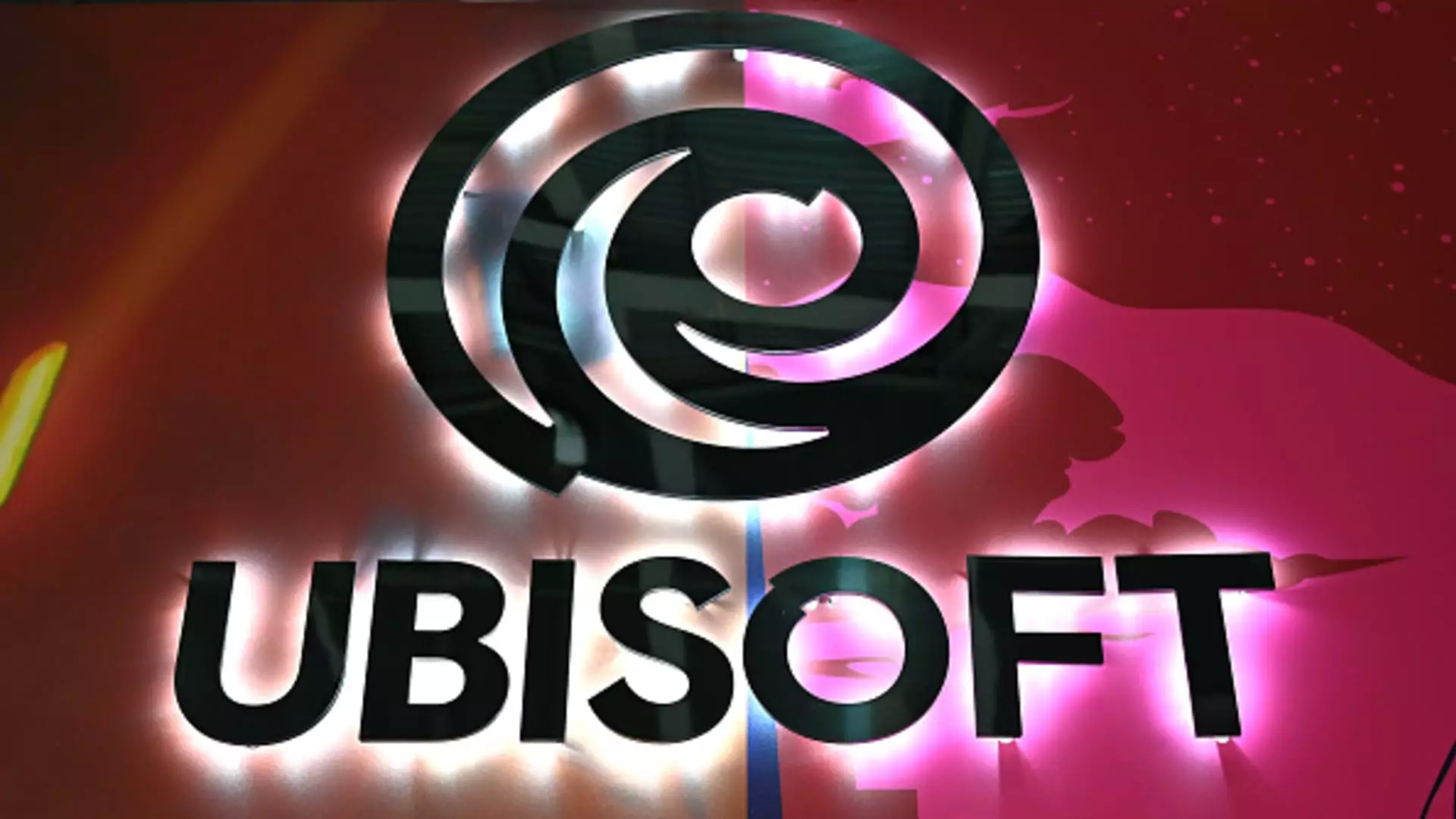The French video game industry has been a hotbed of activity, particularly concerning Ubisoft, a major player known for blockbuster franchises like “Assassin’s Creed.” The company’s shares experienced a remarkable surge of over 30% on a recent Friday, fueled by reports that Tencent, a Chinese technology giant, in collaboration with the founding Guillemot family, is contemplating a possible buyout of Ubisoft. This significant uptick in stock value stands in stark contrast to the company’s troubling trajectory over the past year, which has seen its market valuation plummet by more than half.
The speculation surrounding the potential buyout comes at a critical juncture for Ubisoft, which has been mired in uncertainty and investor apprehension. Bloomberg News revealed that Tencent and the Guillemot family, both minority shareholders, are exploring various avenues, including the possibility of privatizing the company. This news has reignited hope among investors, leading to a spike in stock price, closing at a hefty 33.5% above prior levels. Despite this upcoming interest in a buyout, Ubisoft has chosen to remain silent on the matter, a strategy that aligns with its overall reticence in the face of mounting criticism.
Operational Challenges and Management Concerns
Underlying the stock volatility are serious concerns regarding Ubisoft’s operational direction. Recently, the company announced a delay in releasing “Assassin’s Creed Shadows” by three months, attributing the decision to disappointing demand for its newly launched title, “Star Wars Outlaws.” This move has not only frustrated fans eager for new content but has also cast doubt on Ubisoft’s capacity to deliver high-quality gaming experiences. Predictably, such delays ripple through investor confidence, leading to questions about the future prospects of the company.
Compounding these issues, Ubisoft adjusted its financial forecasts downwards, projecting net bookings of approximately 1.95 billion euros for its 2025 fiscal year, significantly lower than the 2.32 billion euros reported for 2024. These financial readjustments come amidst increasing scrutiny from activist investors like AJ Investments, who have rallied the backing of approximately 10% of Ubisoft’s shareholder base. They are not only advocating for a management overhaul but also pushing for an urgent reassessment of the company’s strategies—an indicator that many shareholders now feel that drastic changes are necessary to rescue the gaming giant.
The broader gaming landscape is not doing Ubisoft any favors. The global gaming market’s projected growth of only 2.1% year-over-year in 2024, as reported by research firm Newzoo, highlights the prevailing industry challenges. This slow growth contrasts sharply with an explosive rise seen during the COVID-19 pandemic, which left gamers starved for content. Furthermore, many players are gravitating towards older, established titles instead of new releases, exacerbating the pressures faced by publishers.
James Lockyer, a technology research analyst at Peel Hunt, notes that the crowded gaming landscape, combined with financial strain due to the cost of living, has left consumers with less disposable income to spend on new games. This shift in consumer behavior has detrimental effects on revenue expectations for newer game releases, including those from Ubisoft. Gamers are becoming increasingly selective, driven by a wider array of choices, which contributes to Ubisoft’s declining market position.
As Ubisoft navigates these tumultuous waters, the prospect of a buyout by Tencent or similar investors may present a viable path to stabilization. The market reaction to potential privatization indicates a sliver of optimism among investors amidst widespread concern. The roadmap ahead will likely be critical in determining the future of both Ubisoft and its revered franchises.
As a company rooted in innovation, Ubisoft must address its operational shortcomings while simultaneously gauging investor sentiment. In an industry defined by rapid changes and fierce competition, making strategic decisions regarding its management and product pipeline will be essential. Whether by finding new leadership or pursuing privatization, the firm’s trajectory over the coming months will undoubtedly be one to watch closely. With mounting pressure from investors and evolving market dynamics, the potential for renewal remains, albeit contingent on bold and decisive action.


Leave a Reply